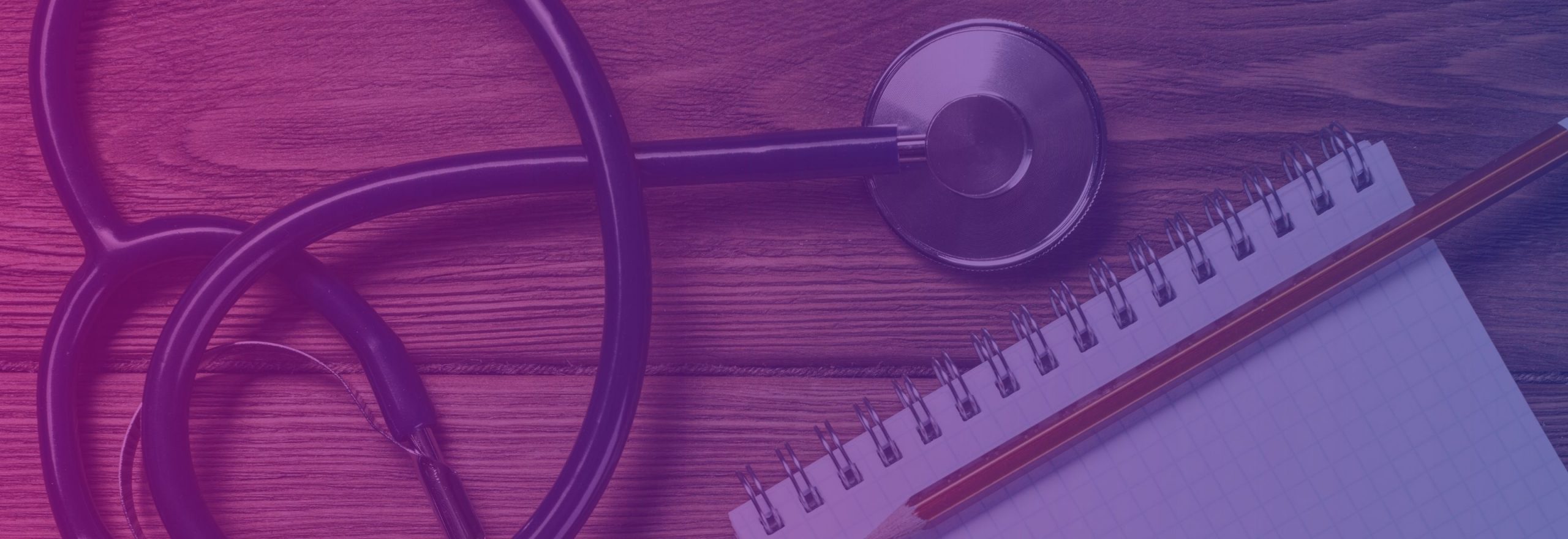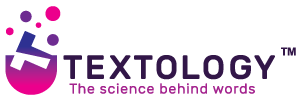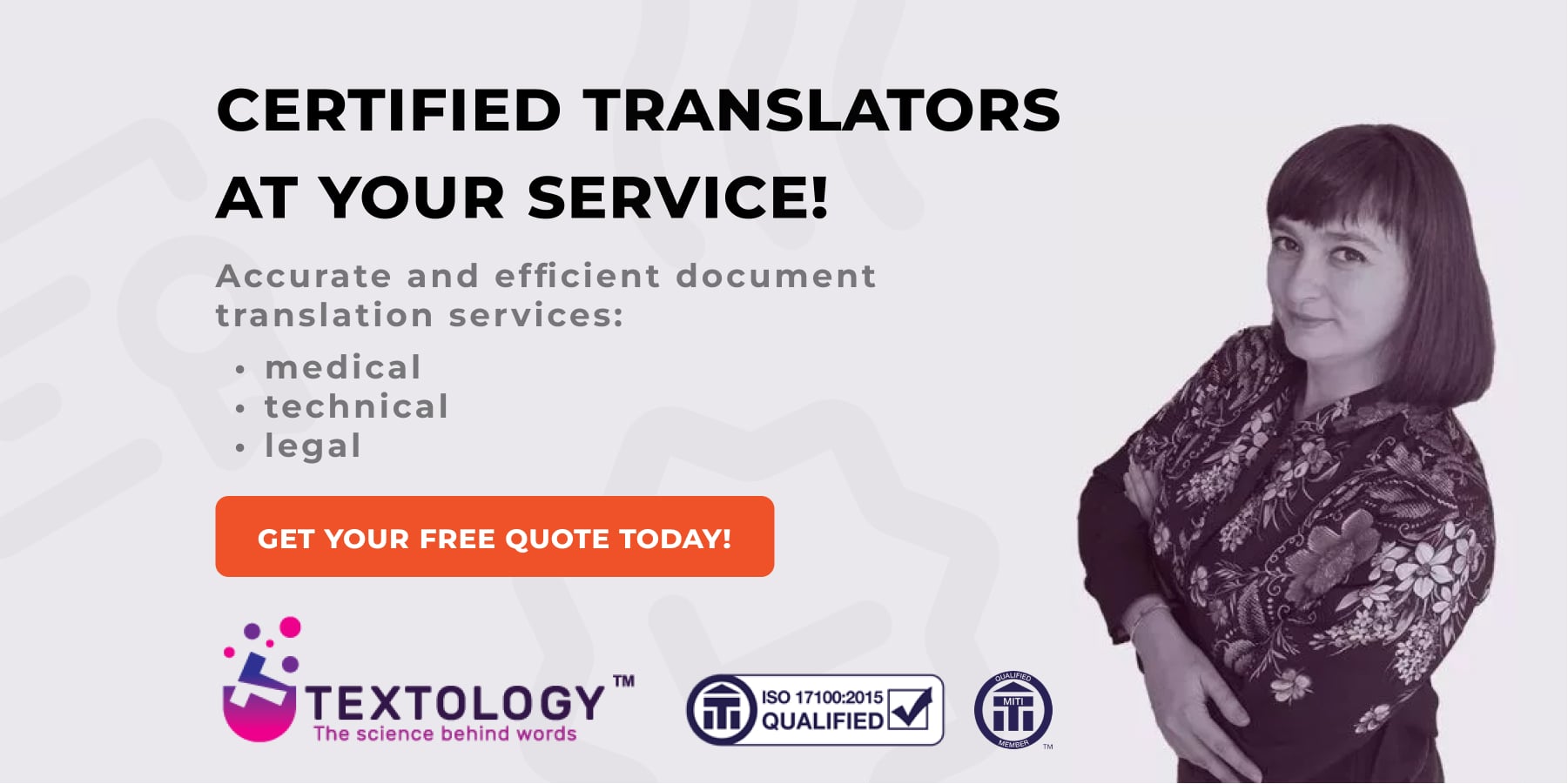
Correct translation and interpreting is crucial, when it comes to topics connected with the world of medicine. Mistranslation may lead to clinical consequences, such as health or life hazard. It can also be the reason for financial claims or lawsuits. This is why ensuring sufficient standards of quality in interpreting and medical translation is so important. What should we know about the quality assurance in medical translation?
What is medical translation?
Medical translation is one of the most demanding and complex kinds of translation. It must be performed with special care and precision. When it comes to medical topics, there is a challenging terminology that not everybody can understand.
Medical translation is translating many types of documents – from training materials for healthcare, marketing or clinical, medical device or pharmaceutical fields, informed consent forms, regulatory, to technical documentation. We cannot forget about medical records translations.
All the documents must be translated correctly, by taking every single detail into account. Simply saying, areas of translation are related to healthcare, pharmacy, medicine, nursing, obstetrics, medical emergency, dentistry and medical technology.
Who uses medical translation services?
Many doctors regularly use the services of medical translators, who translate prescriptions, patients’ medical records, medical history and diagnoses, which are written in a different language. Translations are needed in hospitals, pharmaceutical companies, medical device manufacturers but also in the case of individual clients – they can benefit from medical translations too.
What is the duty of a medical translator?
This kind of translation plays a significant role in knowledge mediation. Thanks to medical translation, we know medical research results and we hear about new findings in the global scientific community. What is more, we can discover new medical devices and medicinal products.
Medical translator expresses the sense of texts or words in another language. He translates articles, books and presentations. His job is also to interpret instruction manuals for medical instruments and equipment, and also documents for clinical trials. A well-qualified translator should know the subject matter terminology, understand a source text and have proficient writing skills. Ability to use specialised dictionaries and glossaries is also needed.
Medical translators make communication easier
Medical translators are expected to have considerable skills not only in translation in general, but also in a given subject area. Moreover, written materials have to be made available to patients from different countries and cultures, who may not be able to speak in a certain language.
Some of the medical translators specialise in professional-layman communication, whereas another ones are specialists in mediating communication between (health care) professionals. Medical translators make the process of communication much easier. Without them, there is a straight line to mistranslations which may lead to health-threatening or life-threatening situations.
The role of medical translation
Medical translation plays an important and accessory role in medical research. This is one of the oldest and the most universal forms of translation, considering human anatomy and physiology. The history of medicine is really well-documented, just because of the best quality medical translation.
Nowadays, there is a big need for competent and efficient medical translators and medical interpreters who can mediate knowledge in intercultural and interlingual medical settings. This is the reason why there are more and more medical translation services with experts in their field.

Why is quality assurance so important?
The quality of medical translation is subject to a continuous improvement. When we say “quality” in a context of medical translations, we mean translator training and qualifications. Quality is also connected with verification measures which are applied in order to detect translation errors in medical texts.
Translation quality is a really complex issue. It involves not only correct language use and accuracy but also compliance with contractual requirements and client satisfaction. It is also the matter of designing control methods for error detection and readabity testing.
Consequences of translation errors
Creating good interpretations and translations is of great importance. Especially when there are some errors in a medical text, it affects the quality of medical care. Translation errors may affect an author’s reputation. Moreover, healthcare services can be adversely influenced in the case of bad translation or interpretation.
Reliability of data from the course of clinical trials goes down because of mistranslations. What is even worse is that when a piece of information is wrongly translated, a patient’s condition may be diagnosed or/and treated inappropriately and it may trigger severe clinical consequences. This is why medical translations have to be credible, comprehensive and accurate.
What causes errors in medical translation?
First of all, sometimes translators don’t interpret some word or phrase uttered by a child, parent or clinical. Another error is adding words which are not necessary and were not uttered by anyone. Substituting one word for a different word may also lead to misinterpretation.
In addition, the interpreter may have his/her own personal view and sometimes he/she changes what was said by other people, which is unacceptable. There is also a problem in a situation when the interpreter uses an incorrect word, or phrase which doesn’t exist in that particular language.
Another issue is omitting – for example, omitting dosage instructions and questions related to allergies to medical products. Translator cannot forget about things such as duration or frequency of drag administration. Inaccurate pieces of information about the patient’s condition, symptoms or medical history? It is unacceptable too.
How to avoid medical translation errors?
The punchline is that everyone who wants to be a medical translator must be appropriately trained. They need to have skills and expertise. A good command of source language and target language is required, as well as the ability to interpret messages in a neutral and a precise way.
Avoiding translation errors may be possible with a lot of adequate trainings, peer observation and feedback sessions. This is what quality assurance is all about – it is a way of preventing potential mistakes. Quality assurance process relies on helping eliminate errors and improving clarity of medical documents. It is an achievable goal not only with qualified professionals but also with control measures for the detection of discrepancies and mistranslations.
Why is using Google Translate not a good idea?
Remember one rule: whether you are a professional translator, doctor, or just a person who wants to understand the meaning of some words from a different language, don’t use Google Translate for medical translation. It has nothing to do with a high quality. Why?
Mostly because its translations are literal, which means that if there is a word with more than one meaning, some idiom or medical jargon – it may completely change the sense of the whole sentence. It is much better to ask a professional translator for help rather than translate texts in the translation tool.
How to choose the best translation agency?
There are many translation agencies which specialise in medical translations and interpretations. Which one to choose? For the person who is looking for a high quality and professional service, the only right choice is picking up TEXTOLOGY – the best translation agency with an extensive experience working across variety industries and sectors.
In TEXTOLOGY, there are professionals with expert knowledge and many years of experience. They have all the required certificates. Qualified translators ensure high quality service at all stages of cooperation. The company is willing to work not only with individual clients but also with pharmaceutical companies, medical facilities and healthcare providers.
We encourage you to take advantage of our offer – if your medical documents need to be translated, we are waiting for you in TEXTOLOGY! You will find the best quality translations in the areas related to medicine, pharmacy, healthcare, nursing and medical technology. Contact us and ask about your free quotation now on our website.
The importance of quality assurance in medical translations
Quality assurance in medical translation is very important. Checking the quality of translated medical documents is crucial – without that, some errors could appear. Translators need to have medical knowledge in order to translate and interpret all the documents correctly. Firstly, they perform the initial translation of the document so that the quality of translation could be verified. Final translation has to be impeccable and precise. Mistranslations could lead to serious clinical consequences. This is the reason why quality control is so valid.

